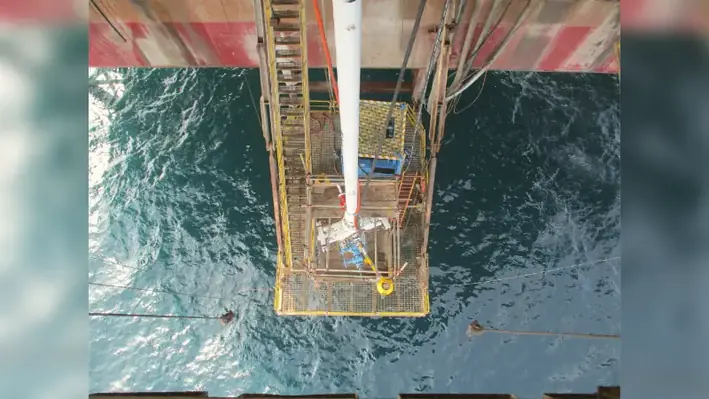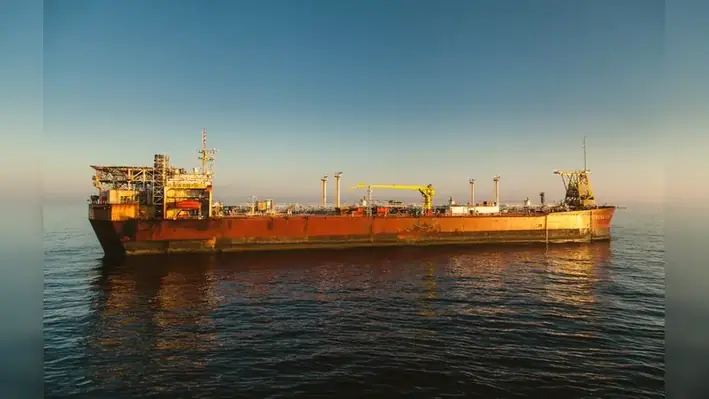 In a significant stride for India’s energy infrastructure, the Panna-Mukta and Tapti (PMT) joint venture – comprising Shell (via BGEPIL), Reliance Industries Limited (RIL), and ONGC – has wrapped up country’s first offshore decommissioning project successfully.
In a significant stride for India’s energy infrastructure, the Panna-Mukta and Tapti (PMT) joint venture – comprising Shell (via BGEPIL), Reliance Industries Limited (RIL), and ONGC – has wrapped up country’s first offshore decommissioning project successfully.
The milestone marks the safe removal of offshore facilities in the mid and south Tapti fields, located off India’s west coast.
The PMT JV, which operated the Tapti fields under a production sharing contract with the Government of India, includes ONGC with a 40% stake, and BGEPIL (Shell) and Reliance holding 30% each.
Production from the fields ceased in March 2016, marking a major shift in India’s oil and gas sector – from extracting resources to safely shutting down operations.
The multi-phase project involved the removal of five wellhead platforms, the safe plugging and abandonment of 38 wells, and the removal of infield pipelines. The entire process closely adhered to safety and environmental standards, at every stage – from offshore execution to onshore dismantling, planned with utmost precision.
The project, aligned with India’s ‘Make in India’ mission, awarded major contracts to Indian firms – Larsen & Toubro, who led the offshore removal, while Chowgule Shipyard in Ratnagiri handled the onshore dismantling. This not only strengthened domestic capability in energy infrastructure but also created a blueprint for future decommissioning operations in Indian waters.
What sets this project apart is not just its scale but its role in shaping a strong regulatory and operational framework for offshore decommissioning in India. Built in close collaboration with stakeholders – the Ministry of Petroleum and Natural Gas, the Directorate General of Hydrocarbons, and the Oil Industry Safety Directorate, the Tapti decommissioning project sets a benchmark of how legacy fields can be responsibly retired.
“The safe and successful completion of the Tapti offshore project is a landmark moment for India’s offshore energy sector,” said Nipun Pradhan, managing director of BGEPIL and GM, Shell Upstream India, adding, that this project sets a new benchmark for responsible decommissioning, which has been made possible by global expertise, strong collaboration, and an unwavering commitment to safety and sustainability.
Sanjay Barman Roy, president of E&P, Reliance Industries, shared, “The safe and responsible offshore decommissioning by the PMT JV marks a significant step forward for India’s energy sector. From the outset, the JV partners worked tirelessly to strengthen local supply chains and enhance the technical and safety capabilities of Indian contractors, especially for offshore dismantling activities,” stating that this has been successful in fulfilling the government’s ‘Make and Break in India’ vision.
For ONGC, the project’s complexity, given its proximity to active assets, underscored the importance of meticulous planning. “This first-of-its-kind large-scale offshore decommissioning underscores ONGC’s commitment to responsible energy practices, said Pankaj Kumar, director of production, ONGC, expressing that the project’s complexity, especially its proximity to ONGC’s live assets demanded strategic planning, precise execution, and utmost focus on safety and that it sets the foundation for India’s next chapter in offshore transformation.
As India strives to balance energy growth with environmental responsibility, the Tapti project sets a timely benchmark for offshore decommissioning in the country’s evolving energy transition.




